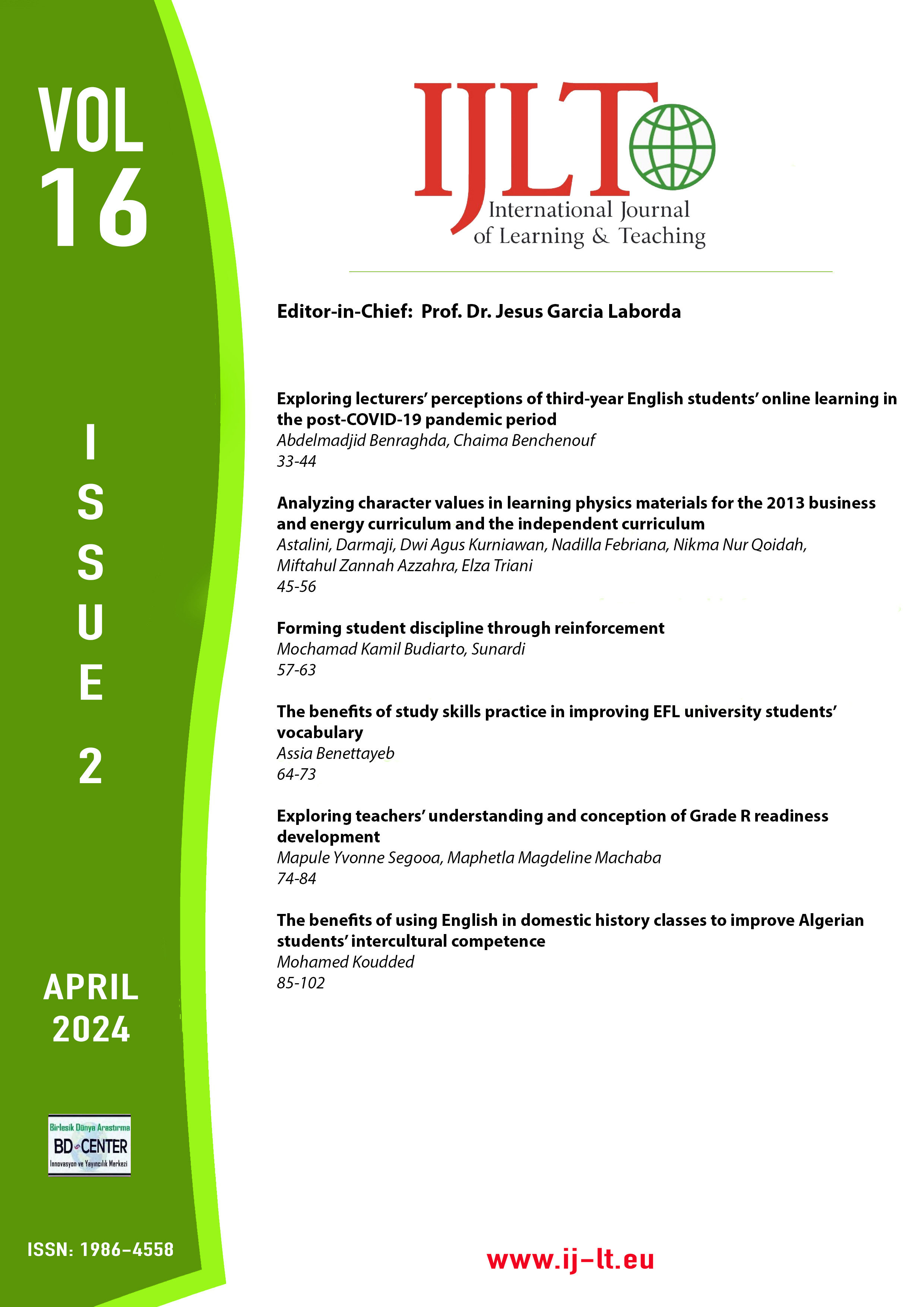The benefits of study skills practice in improving EFL university students’ vocabulary
Main Article Content
Abstract
Study Skills are one of the most important modules English as a Foreign Language University students study for the first two years of their license degree. During this period, students are exposed to a variety of skills that help them study successfully. The practice of these skills and others using many assignments and tasks enables students to benefit from learning and improving vocabulary. This makes also study skills sessions a real opportunity for students to learn new vocabulary, reinforce the existing one, and therefore improve their lexical stock as a whole. The present paper is a case study conducted with ten-year EFL University students and four teachers at the University of Tlemcen (Algeria). It aims to emphasize the importance of study skills practice and its benefits on students’ EFL learning in general and vocabulary improvement in particular. To achieve this aim, two questionnaires and classroom observation are used to collect data which are analyzed both qualitatively and quantitatively. The interpreted and discussed results confirm that study skills practice plays a crucial role in students’ vocabulary learning and improvement by offering them real occasions to use, learn, and reinforce vocabulary in addition to many other benefits. It is recommended for 1st year EFL University students to practice study skills regularly to improve their vocabulary.
Keywords: Benefits; EFL; English as a foreign language; study skills; university; vocabulary.
Downloads
Article Details

This work is licensed under a Creative Commons Attribution-NonCommercial-NoDerivatives 4.0 International License.
Authors who publish with this journal agree to the following terms:
- Authors retain copyright and grant the journal right of first publication with the work simultaneously licensed under a Creative Commons Attribution License that allows others to share the work with an acknowledgement of the work's authorship and initial publication in this journal.
- Authors are able to enter into separate, additional contractual arrangements for the non-exclusive distribution of the journal's published version of the work (e.g., post it to an institutional repository or publish it in a book), with an acknowledgement of its initial publication in this journal.
- Authors are permitted and encouraged to post their work online (e.g., in institutional repositories or on their website) prior to and during the submission process, as it can lead to productive exchanges, as well as earlier and greater citation of published work (SeeThe Effect of Open Access).
